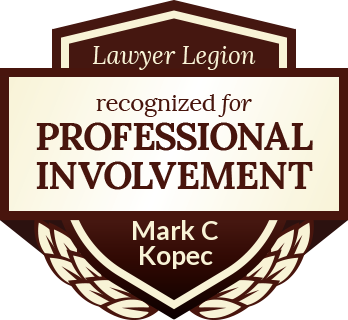Statutory Immunity: Constantine v. BWEP
On February 28, 2024, the Appellate Court of Maryland issued an unreported opinion in the medical malpractice case of Constantine v. Baltimore Washington Emergency Physicians, Inc. The Court found statutory immunity for the emergency room care provided during the COVID state of emergency. Unfortunately, this impactful decision does not appear to have drawn any attention in the press or on the Internet.
Facts
The plaintiff went to the BWMC emergency room in 2020 at the beginning of the COVID-19 pandemic. The first visit was on April 22, and then the second was on April 25. On April 22, the plaintiff reported fever, muscle aches, chills, nausea, mild cough, and diarrhea. She also said a lot of people at her work were sick and suspected to have COVID. The ER staff suspected she had COVID but did not test her because she did not meet the testing criteria in effect at the time. (Op. at 1).
On April 25, the plaintiff returned by ambulance with knee and back pain, sweat, chills, and cough. Specifically, her knee pain was increasing. The ER staff diagnosed her with suspected COVID and knee effusion. It discharged her, instructing her to return if she had difficulty breathing.
On April 30, she went to another ER and was diagnosed to be septic, have Group A strep., and suspected endocarditis. She did not test positive for COVID (Id.).
The plaintiff sued the BWMC emergency physicians. The defense moved for summary judgment based on statutory immunity under PS 14-3A-06., which the circuit court granted (Id. at 2).
The plaintiff’s complaint alleges that she had a markedly elevated white blood cell count, including elevated bands indicating a more severe infection. (Id.).

Statutory Immunity
On March 5, 2020, the Maryland governor declared a state of emergency due to COVID-19. Subsequently, he issued executive orders under that declaration. On May 6, the governor issued a proclamation stating:
“Health care providers who act in good faith under this catastrophic health emergency proclamation, including orders issued under the proclamation by the Governor and by other State officials acting at the direction of or under delegated authority from the Governor, have the immunity provided by §14-3A-06 of the Public Safety Article of the Maryland Code.”
A May 6 directive from the MD Health Department stated: “MDH does not construe the immunity provisions in Pub. Safety Art. § 14-3A06 or Health Gen. Art. § 18-907 to apply to a healthcare provider or facility performing non-COVID-19 related procedures or appointments.”
Under PS 14-3A-06, “[a] health care provider is immune from civil or criminal liability if the health care provider acts in good faith and under a catastrophic health emergency proclamation.”
Appellate Court’s Analysis of Statutory Immunity
The Appellate Court found that the governor’s March 5 proclamation triggered this application of statutory immunity. The Appellate Court observed no allegation of failure to act in good faith. As a result, the question is what does it mean to act “under” the proclamation. (Op. at 8-9).
The Court found that the ER physicians had provided COVID-related care even though they had not provided the care allegedly needed for another infection process in the knee (Id. at 11). As a result, the Appellate Court found that the care was “sufficiently related” to the emergency proclamation to be entitled to statutory immunity under PS 14-3A-06 (Id. at 11-12).
The Court held that the May 6 directive did not apply because the official issued it after the care (Id. at 11-13). The Court also noted that other factual scenarios may raise various issues relating to statutory immunity.
Commentary
This commentary is more related to the nature of the statutory immunity than the Court’s interpretation.
Officials’ Response to COVID
Many of the decisions that government officials made during COVID were questionable. They include expansive lockdowns, frequently changing (and sometimes inconsistent) directives on mask mandates, “physical distancing,” limits on gathering sizes, quarantine requirements, and testing guidelines. Officials had to make many decisions without all of the information they would have liked about COVID, including its contagiousness and prospects for treatment. Despite this limitation, however, there is ample evidence that many decisions could have been more wise regardless of the state of knowledge.
Some of the difficulties with the policy decisions are the inevitable challenges that “one size fits all” rules always present. These same challenges apply to healthcare provider statutory immunity. Perhaps more importantly, however, statutory immunity is arguably unnecessary to accomplish its goals.
Maryland’s Standard of Care is Sufficient
Suppose the immunity is to protect healthcare workers in a public emergency. In that case, the medical malpractice system already does that. In Maryland, the standard of care for healthcare workers is the standard of practice among members of the same healthcare profession, with similar training and experience, situated in the same or similar communities at the time of the alleged malpractice. CJP 3-2A-02(c)(1).
Two components apply to this discussion: “standard of practice . .. at the time of the alleged malpractice.” Any medical malpractice case related to care provided during a public health emergency would use a standard of care that reflects the circumstances of the emergency. In this public health situation, that would include the knowledge at the time about COVID and its testing and treatment.
Because of this standard, some aspects of COVID cases make them unviable as medical malpractice cases. Throughout the COVID pandemic, I spoke to many potential clients who had bad outcomes from COVID-19. I did not see a possible medical malpractice case in nearly all of those instances. The reason was usually the lack of any proven treatment and the unpredictability of the outcomes. There often was no pattern. Some young and otherwise healthy patients died or had permanent complications, and some older, health-compromised patients made complete recoveries.
Consequences of Statutory Immunity
Constantine, however, was not a COVID case. It was a suspected COVID case. Other facts indicated an unrelated, serious infection process. These options are the essence of differential diagnosis. The health care providers got it wrong.
Statutory immunity has given the healthcare providers an automatic pass at the expense of the plaintiff’s permanent loss. The medical malpractice system, however, was equipped to weigh the healthcare provider’s actions according to the appropriate standard to determine whether the plaintiff was entitled to compensation.
As the Appellate Court recognized, it is unknown how many other plaintiffs will be denied the protection of the justice system under statutory immunity.
Mark Kopec is a top-rated medical malpractice lawyer. The Kopec Law Firm is located in Baltimore and helps clients throughout Maryland and Washington, D.C. You can contact him at 800-604-0704 for a free consultation. Thank you for reading the Maryland Medical Malpractice Lawyer Blog.





